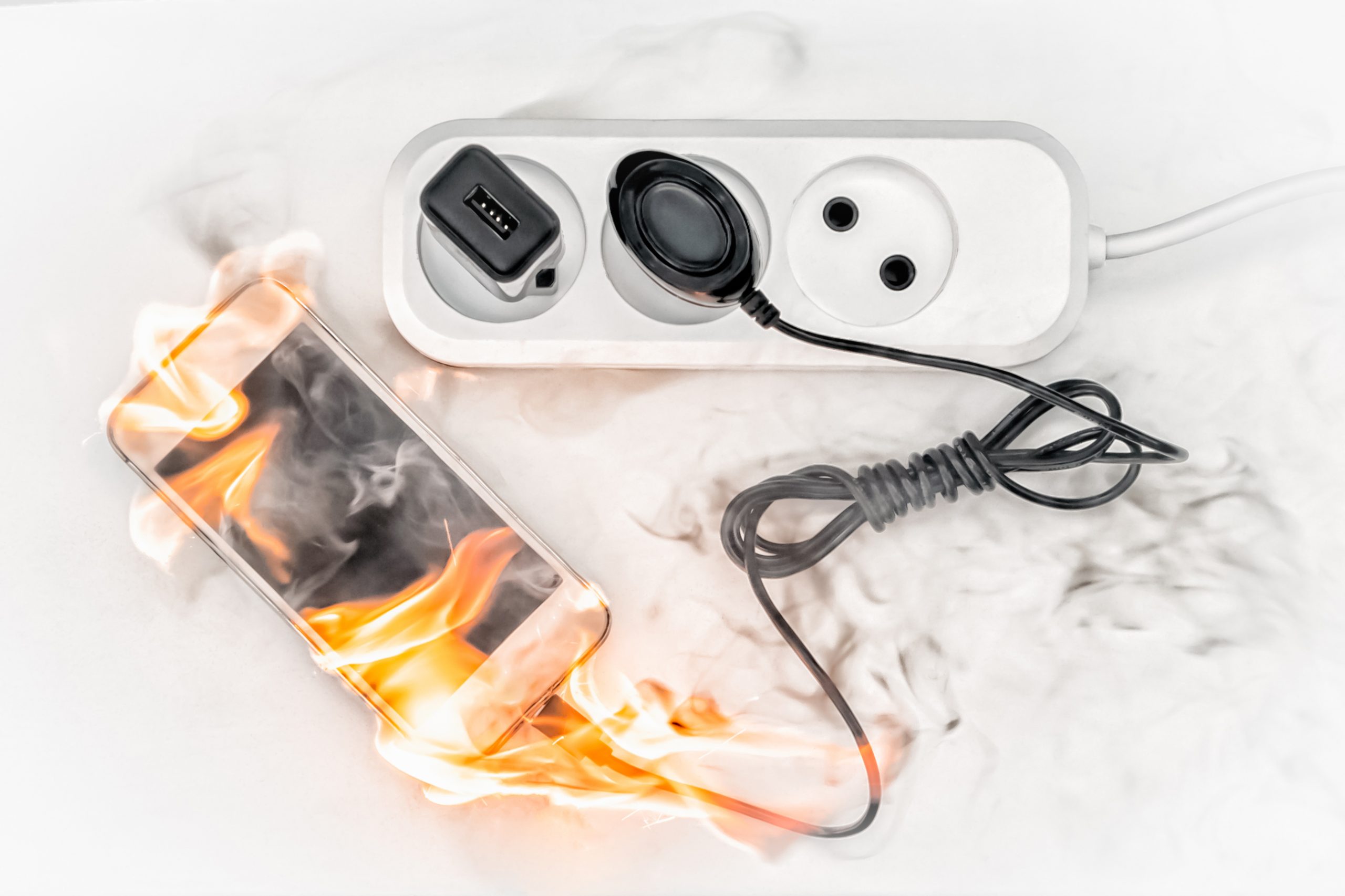News
Electrical charger fire warning

Guest Author:
Emma LunnAn insurer has warned customers to take care when charging electrical items, after receiving dozens of home fire claims caused by chargers and batteries in 2021.
According to Aviva, multiple home fire claims this year have been linked to faulty, damaged or incorrect chargers, or items which were left to charge for too long. Aviva found a common cause of components over-heating, leading to fires in the home.
The insurer said that in many cases, home owners are in a difficult position damage was exacerbated because customers had put items to charge and then left their homes, enabling fires to take hold.
Aviva claims involving batteries in 2021 include fires caused by an e-scooter battery left on charge in a garage, an exploding e-cigarette battery and the overheating of lithium batteries from a model aircraft. All these claims ran into six figures.
Sarah Applegate, data analytics lead for Aviva General Insurance, said: “This appears to be a growing problem as the number of battery-powered items increases. We would strongly urge people not to leave their electrical devices unattended while being charged or leave items charging when batteries are full.
“In the last 12 months alone, we’ve seen incidents relating to e-scooter and e-bike batteries, e-cigarettes and even an electric golf caddy, each causing six-figure sums of damage and considerable inconvenience and distress for the families involved. As we see more cordless devices around the home and garden, it’s becoming even more important for householders to remain aware of fire safety when charging batteries.

Wellness and wellbeing holidays: Travel insurance is essential for your peace of mind
Out of the pandemic lockdowns, there’s a greater emphasis on wellbeing and wellness, with
Sponsored by Post Office
“The number of claims caused by chargers is actually relatively small in relation to fire claims overall. We tend to see more fire claims as a result of candles and garden fires, for example. However, because people don’t tend to think of chargers as a fire hazard, they often leave them unattended, which means the damage can be worse and more disruptive for customers.”
Tips for using batteries and chargers:
* Always use genuine chargers which are designed specifically for your devices. Counterfeit chargers may not meet UK regulations and can cause batteries to overheat.
* Replace your charger if it becomes faulty or if wires are exposed / fraying.
* Don’t leave batteries charging when you go out. A fire can take hold very quickly and the damage is likely to be much worse if it is not spotted and attended to immediately.
* Stop charging your device as soon as the battery is full and don’t leave items charging overnight.
* Put your device on a non-flammable surface when charging. Avoid highly flammable materials such as clothes, bedding, cushions or paper and don’t cover devices while they are charging.
* Don’t overload electrical sockets. Visit sites like https://callw3.com/commercial-electrician-services/ for additional guidance.
* Be careful how you dispose of batteries. Many local authorities offer facilities at recycling centres to ensure that ‘spent’ batteries can be disposed of safely.
* Store batteries responsibly. Don’t expose them to extreme cold or heat.